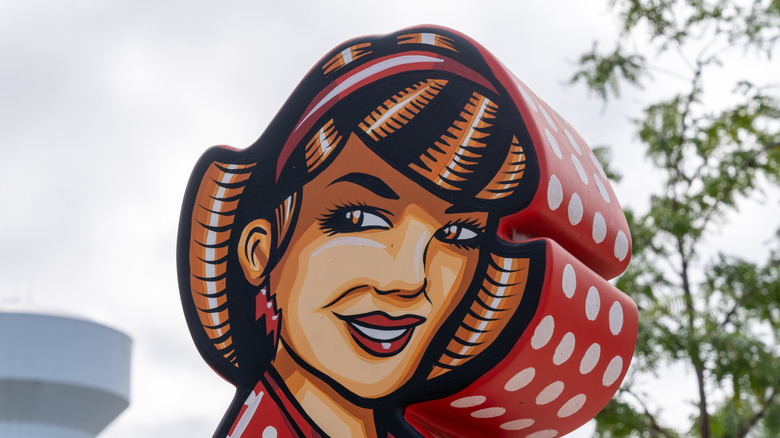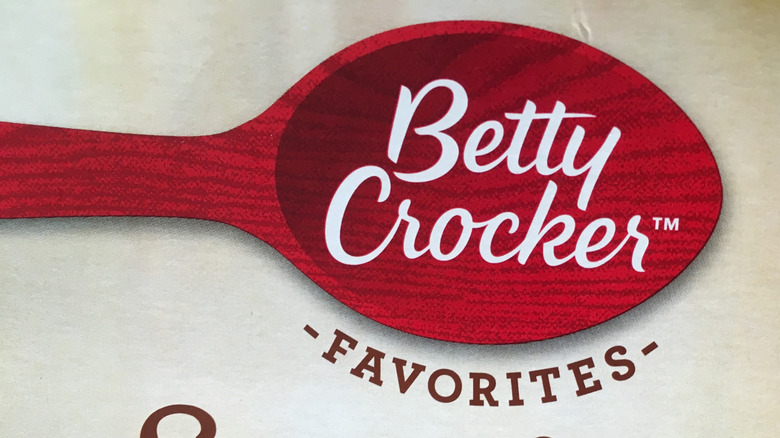If Betty Crocker Wasn't Real, Who Was Actually Behind The Famous Brand?
Betty Crocker has been an iconic symbol for generations of U.S. shoppers for over 100 years now. Her face may have changed over all that time, but really, whose hasn't? Still, that visage and the red spoon emblazoned with her signature still represent everything from cake mixes — which can be improved by adding all manner of unexpected ingredients — to cookbooks for anyone who has ever stepped into a U.S. supermarket. However, there's one fact about Ms. Crocker that you may not know. Unlike Chef Boyardee, whose face still graces canned spaghetti to this day, Betty Crocker was never a real person.
It all starts with the Washburn-Crosby Company, a milling company that was the predecessor to General Mills. In 1921, it asked readers of the Saturday Evening Post to complete a jigsaw puzzle and mail the result in to win a pincushion shaped like a bag of Gold Medal Flour. With the entries came requests for cooking advice. To personalize the brand, the company created a fictional woman to respond to all the questions.
Though Betty Crocker's origins were a bit spur-of-the moment, her name was chosen deliberately. The advertising department decided that Betty was a friendly moniker customers could relate to, while Crocker was the last name of one of the company's executives.
The real women behind Betty Crocker
Betty's appearance has changed throughout the years to reflect the look of a modern woman, although some things have remained the same. In all her official portraits, Betty has short, dark hair and is typically wearing a white blouse under a red garment to represent the company colors. The first image was created in 1936 by artist Neysa McMein, a trailblazer as women were not expected to choose an artistic life back then. In creating the image, McMein created a composite portrait using the features of many of the company's female employees. That iconic signature of hers was also picked from a selection submitted by a group of those women workers.
Another female trailblazer had a hand in creating the early fictional Betty Crocker. Marjorie Child Husted was head of the Home Service Department at the Washburn-Crosby Company when Betty's persona was being created. Beginning in 1927, Husted was responsible for the voice of Betty heard on her namesake radio show ; she also interviewed Hollywood celebrities like Clark Gable and Jean Harlow. In 1948, President Harry S. Truman presented Husted with the Women's National Press Club Woman of the Year award.
General Mills has owned the Betty Crocker brand since 1928, and it has expanded beyond what homemakers of 100 years ago likely ever imagined. From evergreen staples like cake mix to some of the '90s snacks we wish hadn't been discontinued, the brand, with Betty Crocker's face and signature, lives on.

